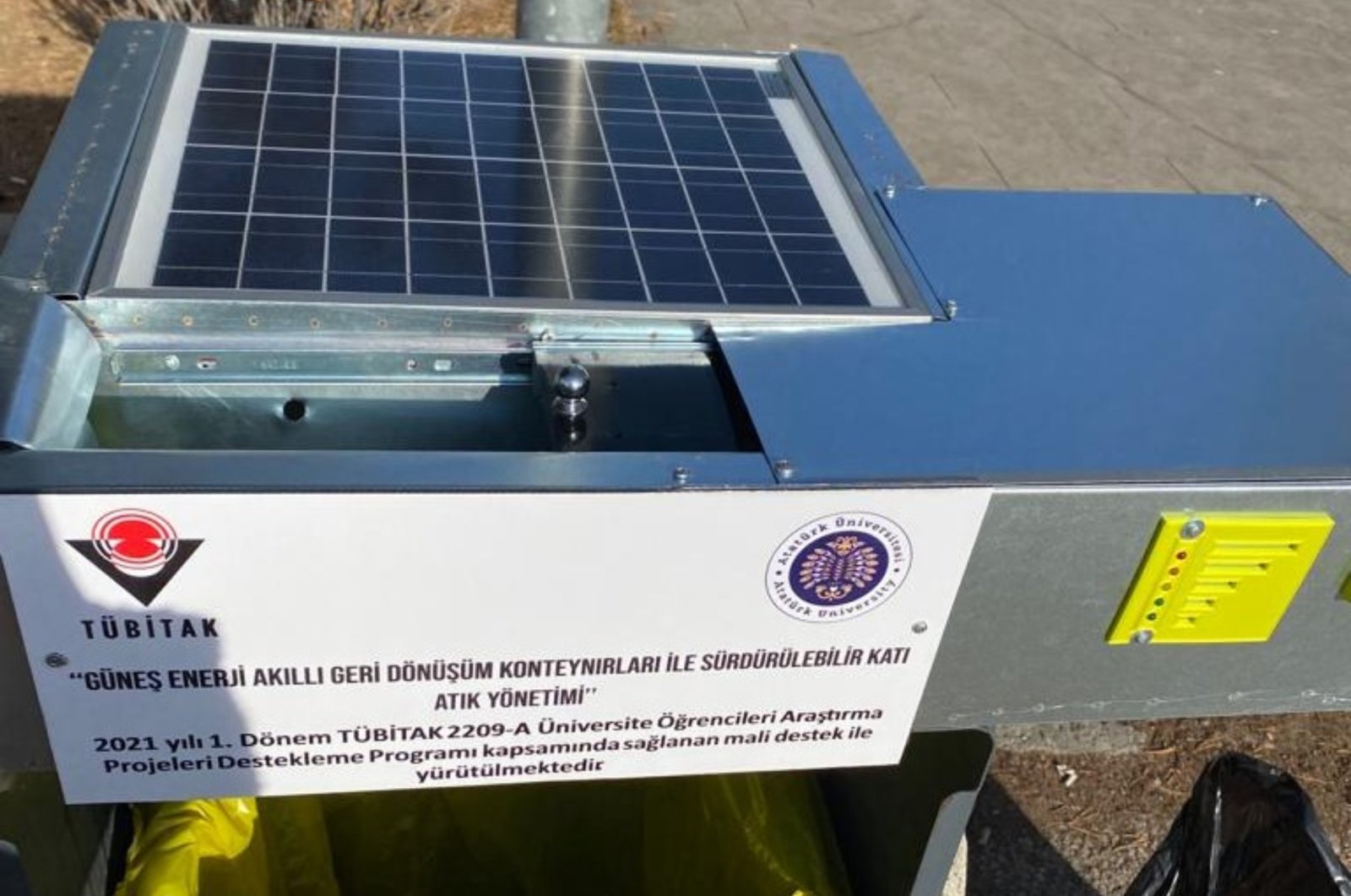
A solar-powered recycling container, developed by a lecturer from Atatürk University in Türkiye's eastern Erzurum province, is set to contribute to reducing greenhouse gas emissions and helping waste management, the designer noted Tuesday.
In an interview with Anadolu Agency (AA), Zeynep Eren, a Department of Environmental Engineering lecturer, explained that the container was developed at the end of a project titled "Sustainable Solid Waste Management with Solar Energy Intelligent Recycling Containers" to contribute to recycling studies.
Eren stated that the container, which compresses discarded plastics and transfers them to "the collection chamber" using solar energy, eliminates energy costs and was designed in coordination with her students. She also mentioned that the normal greenhouse gas emissions emitted by the process were decreased by 80% via the new technology.
She emphasized that recycling is one of the most critical steps in sustainability and that nature's self-renewal process could not keep up with the rate of human consumption and pollution. Through recycling, it is possible to protect the material and reduce the energy needed. Since 2015, the world has turned toward a circular economy model. Eren noted that the first pillar of this model and approach is protecting raw materials and recycling.
A report titled "Exiting the Plastic Trap: Saving the Mediterranean from Plastic Pollution," prepared by WWF-Turkey (World Wide Fund for Nature), indicated that 95% of waste in the Mediterranean is made of plastics.
Additionally, the Mediterranean contains 1.25 million microplastic particles smaller than 5 millimeters per square kilometer.
Recycling plastic is important to increase the amount of waste and prevent microplastic pollution in soil and water.
The intelligent recycling disposer project is still in its patent phase, but Eren said that placing the solar-powered smart recycling box in all open areas would significantly reduce environmental and plastic pollution.
The patent produced by Atatürk University aims to cope with plastic pollution and utilizes solar energy. Eren explained that they received donated industrial materials for the sheet metal connections used on the product, while the plastic ties and apparatus were produced with a 3D printer. They only purchased their solar panel and the necessary materials for the battery.
Eren also explained that by compressing the waste up to 90%, the containers prevent overflowing and are supported by an automatic notification message system alerting when the bin is full. This can reduce the number of trips made by garbage trucks and, accordingly, will help reduce the greenhouse gases from the use of fossil fuels.
The lecturer opined that recycling-related consciousness needs to be encouraged, starting with the public. She underlined that existing patterns should be abandoned and switched to the circular economy model due to irreparable soil, air and water pollution.
Eren said the 2023 recycling targets are 35% of the National Waste Management and Action Plan. She also stated that there are still some shortcomings regarding the recycling system, but the mandatory deposit return system initiated by the Ministry of Environment, Urbanization and Climate Change will help Türkiye achieve its recycling targets.
